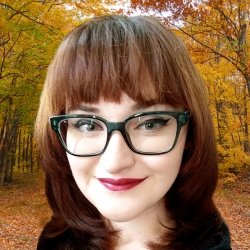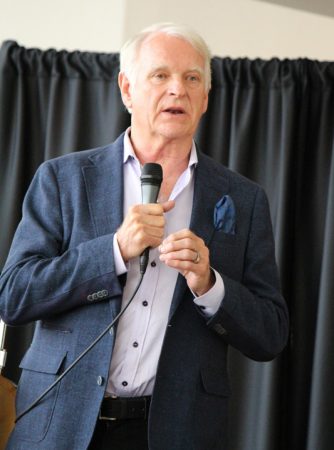By Karen S. Johnson, Communications Director, College of Computing

Data Science graduate student Bonnie Henderson began her master’s degree at Michigan Tech in fall 2019. From Jarrell, Texas, Henderson earned a B.A. in mathematics and French at Southwestern University, Georgetown, Texas.
Henderson is a recipient of Michigan Tech’s David House Family Fellowship, which she describes as a great honor. Her research interests are in artificial intelligence and machine learning.
“The fellowship has made an incredible difference in my life,” Henderson says. “As the first person in my family to go to college, it is an amazing opportunity to pursue my graduate studies fully funded.”
This January, Henderson began managing the College of Computing Learning Center (CCLC), an undergraduate learning lab staffed entirely by student coaches and available to all Michigan Tech students in Computing classes.
“I mostly work to help manage the CCLC,” Henderson says. “I help tutor students in undergraduate computer science courses during CCLC walk-in hours, help run CCLC staff meetings, and when the time comes, I’ll help manage the interviewing and hiring process for new tutors.”
Many Opportunities for Learning
Henderson says her work with the CCLC often presents computer science issues and computing problems that are not always common in data science, providing her with many opportunities for learning.
“Studying data science, I work a lot with programming,” Henderson says. “However, I often work with problems related to mathematics in programming and not always the typical undergraduate programming issues.”
What Henderson likes best about tutoring is what she learns along the way. “Since I did not complete my undergraduate degree at MTU, I’m not always familiar with the problems that students are facing when they come in for tutoring. Everyone looks at a problem a little differently, and I get the opportunity to be exposed to many different thought processes and unique solutions.”
New Methods of Virtual Support
Not surprisingly, the plans for the CCLC have changed a lot since the COVID-19 pandemic began earlier this year. “Before this news, we were planning on hosting workshops and other events for students in the College of Computing and other departments, such as guided study groups, exam review sessions, and specialized support for individual classes,” Henderson says.
But since the CCLC cannot offer conventional face-to-face tutoring right now, these plans are changing and Henderson and the CCLC are responding with new methods of virtual support. “We have started sending out a weekly CCLC email to students, which shares coding tips and tricks, quizzes, and news, and we are working to encourage more student involvement, especially with the current difficulties we are all facing,” Henderson explains.
So, instead of hosting face-to-face events, CCLC walk-in hours are now being hosted through Zoom, and the Learning Center is maintaining a Canvas page where students can find help and find information on their own. They also hope to host some virtual workshops soon. Students can sign up for the CCLC Canvas page here: https://mtu.instructure.com/enroll/KWFTJ9.
Balancing Life, Work and School
Henderson says the most challenging thing about balancing life, work, and school is finding a separate time and place for each one.
“I’ll often be looking at one thing, and something in it reminds me of a problem from something else. I have a tendency to hop around a lot, and sometimes things may get lost,” she says. “It has become increasingly difficult working and studying from home, as everything is now sharing the same physical space.”
To help with that, Henderson says it’s helpful to try to have different spaces for the things she has to do. “Like one chair for working and another chair for schoolwork, even if they are in the same room. Some sort of distancing between everything is definitely needed.”
Learn More About the CCLC
Visit the CCLC website here. Visit the CCLC’s Infinite Loop: Resources to Explore, Learn, Code, Repeat.
The Dave House graduate student assistantships provide $30,000 annually for three years to each of three graduate assistants in Michigan Tech’s Master of Science in Data Science program.
About Dave House ’65, University Friend and Donor

Dave House ’65 (EE) is a longtime friend and generous donor to Michigan Tech.
“I support Michigan Tech because I believe in the critical importance of higher education, not only for the state and the nation, but most importantly for our graduates, House says in an EE department alumni profile.
“The Fourth Industrial Revolution changes everything, and Michigan Tech is perfectly positioned to prepare our students for these changes. I support fellowships in data science because of the role that sensing, networking, big data, artificial intelligence and human/machine interfacing has in the Fourth Industrial Revolution. Supporting graduate and research activities is critical to keeping Michigan Tech agile and at the cutting edge of this revolution.”
The Data Science Master of Science
The Data Science Master of Science degree is offered jointly by the College of Engineering and the Department of Computer Science. Associate Professor Laura Brown, Computer Science, is director of the program.